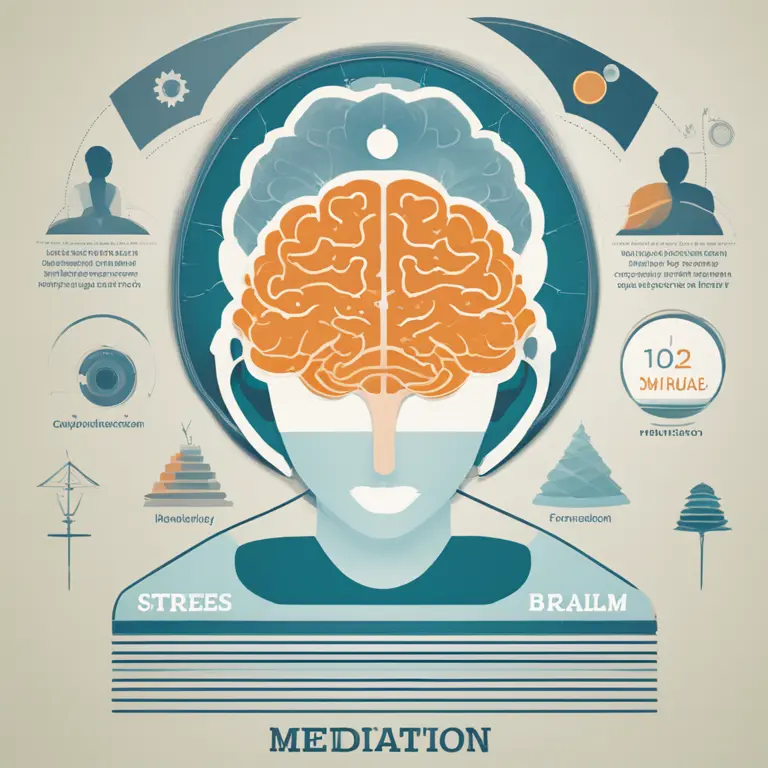
Is Meditation an Antidote for Anxiety?
Discover how meditation can be a potent tool in managing anxiety and cultivating inner peace in our fast-paced modern world.
article by Hina Kurosawa
Introduction to Meditation and Anxiety
Meditation has stood the test of time as a revered practice for fostering tranquility and personal growth. As the modern world becomes ever more hectic and stress-laden, the incidence of anxiety disorders continues to rise. With this increasing need for effective coping mechanisms, meditation is being spotlighted as a potential ally in the quest for mental well-being. This ancient practice, cultivated and refined across various cultures, is now under the scrutiny of modern science to understand its role in anxiety management. As we delve into the essence of meditation, we consider the evidence suggesting its efficacy in soothing the troubled mind.

The Research Behind Meditation and Stress
Recent years have seen a surge in scientific interest regarding meditation's impact on mental health. A plethora of studies now corroborate what practitioners have believed for centuries: meditation can indeed ameliorate symptoms of anxiety. Neuroscience has begun to unravel how regular meditation alters brain patterns, specifically pointing to a decreased activity in the amygdala, the brain's stress-response center. Additionally, mindful meditation practices have demonstrated increases in gray matter density in regions associated with self-awareness and emotional regulation. The data paves the way for meditation to be not just a spiritual exercise, but a science-backed therapeutic modality.

Meditation Techniques for Anxiety Reduction
The landscape of meditation is diverse, offering a multitude of techniques tailored to individual preferences and needs. Mindfulness-based stress reduction (MBSR), for instance, is a structured program that marries mindfulness meditation with yoga to combat anxiety. Another technique, Transcendental Meditation (TM), focuses on repeating a mantra to achieve a state of relaxed awareness. Furthermore, guided meditation, often facilitated by an instructor or an app, provides direction and focuses for practitioners, especially beneficial for beginners. Experimentation is key, as what works for one individual may differ for another, but the essence of each practice remains: to cultivate a sense of presence and calm.

Incorporating Meditation into Daily Life
Integration of meditation into daily routines can be both a challenge and an opportunity for personal development. Consistency is critical; akin to exercising a muscle, the benefits of meditation compound with regular practice. Starting with short sessions and gradually increasing duration can help ease into the practice. It's also important to set the right environment—one that is quiet, comfortable, and free from interruptions. Digital health tools, such as apps and online resources, have made learning and maintaining a meditation practice more accessible than ever before, fitting seamlessly into the digital era of wellness.
Meditation as a Complement, Not Replacement
While the evidence supporting meditation's role in anxiety relief is promising, it is crucial to acknowledge it as part of a comprehensive approach to mental health. Meditation is not a panacea, nor should it replace traditional treatments like psychotherapy or medication for those with severe anxiety disorders. Instead, it should be viewed as a complementary practice that can enhance other forms of therapy. Collaboration with healthcare providers can ensure that meditation is safely and effectively integrated into an individual's treatment plan.
Conclusion
Meditation emerges as a valuable, low-cost, and accessible practice that can significantly contribute to anxiety management. Grounded in both ancient wisdom and contemporary science, it facilitates a greater mastery over the mind's anxious tendencies. As researchers continue to uncover the neurological underpinnings of meditation, its validation as a viable tool for mental health will likely expand. In the pursuit of inner peace, individuals are encouraged to explore meditation as a pathway to alleviate anxiety and enhance overall well-being.
Published: 1/14/2024
Modified: 1/15/2024
More predictions
Come back here soon to learn more about yourself and your future


Calming the Storm: Mindfulness Meditation for Anger
Discover how mindfulness meditation can be a powerful tool for anger management, promoting inner peace and emotional balance.


Easing Loneliness with Mindfulness Meditation
Explore how mindfulness meditation can provide solace and connection to alleviate the feelings of loneliness.


Mindfulness Meditation Basics for First Graders
Introducing foundational mindfulness meditation practices to instill calm and focus in first-grade students.